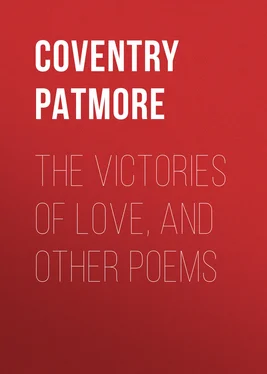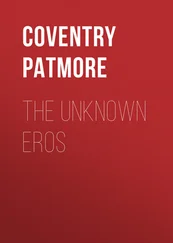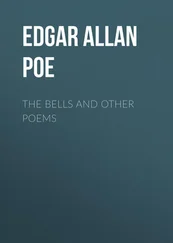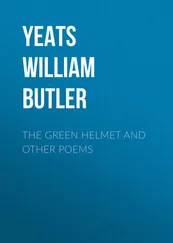Coventry Patmore - The Victories of Love, and Other Poems
Здесь есть возможность читать онлайн «Coventry Patmore - The Victories of Love, and Other Poems» — ознакомительный отрывок электронной книги совершенно бесплатно, а после прочтения отрывка купить полную версию. В некоторых случаях можно слушать аудио, скачать через торрент в формате fb2 и присутствует краткое содержание. Жанр: foreign_poetry, literature_19, Поэзия, foreign_antique, foreign_prose, на английском языке. Описание произведения, (предисловие) а так же отзывы посетителей доступны на портале библиотеки ЛибКат.
- Название:The Victories of Love, and Other Poems
- Автор:
- Жанр:
- Год:неизвестен
- ISBN:нет данных
- Рейтинг книги:3 / 5. Голосов: 1
-
Избранное:Добавить в избранное
- Отзывы:
-
Ваша оценка:
- 60
- 1
- 2
- 3
- 4
- 5
The Victories of Love, and Other Poems: краткое содержание, описание и аннотация
Предлагаем к чтению аннотацию, описание, краткое содержание или предисловие (зависит от того, что написал сам автор книги «The Victories of Love, and Other Poems»). Если вы не нашли необходимую информацию о книге — напишите в комментариях, мы постараемся отыскать её.
The Victories of Love, and Other Poems — читать онлайн ознакомительный отрывок
Ниже представлен текст книги, разбитый по страницам. Система сохранения места последней прочитанной страницы, позволяет с удобством читать онлайн бесплатно книгу «The Victories of Love, and Other Poems», без необходимости каждый раз заново искать на чём Вы остановились. Поставьте закладку, и сможете в любой момент перейти на страницу, на которой закончили чтение.
Интервал:
Закладка:
VI. FROM MRS. GRAHAM
The folly of young girls! They doff
Their pride to smooth success, and scoff
At far more noble fire and might
That woo them from the dust of fight
But, Frederick, now the storm is past,
Your sky should not remain o’ercast.
A sea-life’s dull, and, oh, beware
Of nourishing, for zest, despair.
My Child, remember, you have twice
Heartily loved; then why not thrice,
Or ten times? But a wise man shuns
To cry ‘All’s over,’ more than once.
I’ll not say that a young man’s soul
Is scarcely measure of the whole
Earthly and Heavenly universe,
To which he inveterately prefers
The one beloved woman. Best
Speak to the senses’ interest,
Which brooks no mystery nor delay:
Frankly reflect, my Son, and say,
Was there no secret hour, of those
Pass’d at her side in Sarum Close,
When, to your spirit’s sick alarm,
It seem’d that all her marvellous charm
Was marvellously fled? Her grace
Of voice, adornment, movement, face
Was what already heart and eye
Had ponder’d to satiety;
Amid so the good of life was o’er,
Until some laugh not heard before,
Some novel fashion in her hair,
Or style of putting back her chair,
Restored the heavens. Gather thence
The loss-consoling inference.
Yet blame not beauty, which beguiles,
With lovely motions and sweet smiles,
Which while they please us pass away,
The spirit to lofty thoughts that stay
And lift the whole of after-life,
Unless you take the vision to wife,
Which then seems lost, or serves to slake
Desire, as when a lovely lake
Far off scarce fills the exulting eye
Of one athirst, who comes thereby,
And inappreciably sips
The deep, with disappointed lips.
To fail is sorrow, yet confess
That love pays dearly for success!
No blame to beauty! Let’s complain
Of the heart, which can so ill sustain
Delight. Our griefs declare our fall,
But how much more our joys! They pall
With plucking, and celestial mirth
Can find no footing on the earth,
More than the bird of paradise,
Which only lives the while it flies.
Think, also, how ’twould suit your pride
To have this woman for a bride.
Whate’er her faults, she’s one of those
To whom the world’s last polish owes
A novel grace, which all who aspire
To courtliest custom must acquire.
The world’s the sphere she’s made to charm,
Which you have shunn’d as if ’twere harm.
Oh, law perverse, that loneliness
Breeds love, society success!
Though young, ’twere now o’er late in life
To train yourself for such a wife;
So she would suit herself to you,
As women, when they marry, do.
For, since ’tis for our dignity
Our lords should sit like lords on high,
We willingly deteriorate
To a step below our rulers’ state;
And ’tis the commonest of things
To see an angel, gay with wings,
Lean weakly on a mortal’s arm!
Honoria would put off the charm
Of lofty grace that caught your love,
For fear you should not seem above
Herself in fashion and degree,
As in true merit. Thus, you see,
’Twere little kindness, wisdom none,
To light your cot with such a sun.
VII. FROM FREDERICK
Write not, my Mother, her dear name
With the least word or hint of blame.
Who else shall discommend her choice,
I giving it my hearty voice?
Wed me? Ah, never near her come
The knowledge of the narrow home!
Far fly from her dear face, that shows
The sunshine lovelier than the rose,
The sordid gravity they wear
Who poverty’s base burthen bear!
(And all are poor who come to miss
Their custom, though a crown be this.)
My hope was, that the wheels of fate,
For my exceeding need, might wait,
And she, unseen amidst all eyes,
Move sightless, till I sought the prize,
With honour, in an equal field.
But then came Vaughan, to whom I yield
With grace as much as any man,
In such cause, to another can.
Had she been mine, it seems to me
That I had that integrity
And only joy in her delight—
But each is his own favourite
In love! The thought to bring me rest
Is that of us she takes the best.
’Twas but to see him to be sure
That choice for her remain’d no more!
His brow, so gaily clear of craft;
His wit, the timely truth that laugh’d
To find itself so well express’d;
His words, abundant yet the best;
His spirit, of such handsome show
You mark’d not that his looks were so;
His bearing, prospects, birth, all these
Might well, with small suit, greatly please;
How greatly, when she saw arise
The reflex sweetness of her eyes
In his, and every breath defer
Humbly its bated life to her;
Whilst power and kindness of command.
Which women can no more withstand
Than we their grace, were still unquell’d,
And force and flattery both compell’d
Her softness! Say I’m worthy. I
Grew, in her presence, cold and shy.
It awed me, as an angel’s might
In raiment of reproachful light.
Her gay looks told my sombre mood
That what’s not happy is not good;
And, just because ’twas life to please,
Death to repel her, truth and ease
Deserted me; I strove to talk,
And stammer’d foolishness; my walk
Was like a drunkard’s; if she took
My arm, it stiffen’d, ached, and shook:
A likely wooer! Blame her not;
Nor ever say, dear Mother, aught
Against that perfectness which is
My strength, as once it was my bliss.
And do not chafe at social rules.
Leave that to charlatans and fools.
Clay grafts and clods conceive the rose,
So base still fathers best. Life owes
Itself to bread; enough thereof
And easy days condition love;
And, kindly train’d, love’s roses thrive,
No more pale, scentless petals five,
Which moisten the considerate eye
To see what haste they make to die,
But heavens of colour and perfume,
Which, month by month, renew the bloom
Of art-born graces, when the year
In all the natural grove is sere.
Blame nought then! Bright let be the air
About my lonely cloud of care.
VIII. FROM FREDERICK
Religion, duty, books, work, friends,—
’Tis good advice, but there it ends.
I’m sick for what these have not got.
Send no more books: they help me not;
I do my work: the void’s there still
Which carefullest duty cannot fill.
What though the inaugural hour of right
Comes ever with a keen delight?
Little relieves the labour’s heat;
Disgust oft crowns it when complete;
And life, in fact, is not less dull
For being very dutiful.
‘The stately homes of England,’ lo,
‘How beautiful they stand!’ They owe
How much to nameless things like me
Their beauty of security!
But who can long a low toil mend
By looking to a lofty end?
And let me, since ’tis truth, confess
The void’s not fill’d by godliness.
God is a tower without a stair,
And His perfection, love’s despair.
’Tis He shall judge me when I die;
He suckles with the hissing fly
The spider; gazes calmly down.
Whilst rapine grips the helpless town.
His vast love holds all this and more.
In consternation I adore.
Nor can I ease this aching gulf
With friends, the pictures of myself.
Then marvel not that I recur
From each and all of these to her.
For more of heaven than her have I
No sensitive capacity.
Had I but her, ah, what the gain
Of owning aught but that domain!
Nay, heaven’s extent, however much,
Cannot be more than many such;
And, she being mine, should God to me
Say ‘Lo! my Child, I give to thee
‘All heaven besides,’ what could I then,
But, as a child, to Him complain
That whereas my dear Father gave
A little space for me to have
In His great garden, now, o’erblest,
I’ve that, indeed, but all the rest,
Which, somehow, makes it seem I’ve got
All but my only cared-for plot.
Enough was that for my weak hand
To tend, my heart to understand.
Oh, the sick fact, ’twixt her and me
There’s naught, and half a world of sea.
Интервал:
Закладка:
Похожие книги на «The Victories of Love, and Other Poems»
Представляем Вашему вниманию похожие книги на «The Victories of Love, and Other Poems» списком для выбора. Мы отобрали схожую по названию и смыслу литературу в надежде предоставить читателям больше вариантов отыскать новые, интересные, ещё непрочитанные произведения.
Обсуждение, отзывы о книге «The Victories of Love, and Other Poems» и просто собственные мнения читателей. Оставьте ваши комментарии, напишите, что Вы думаете о произведении, его смысле или главных героях. Укажите что конкретно понравилось, а что нет, и почему Вы так считаете.












